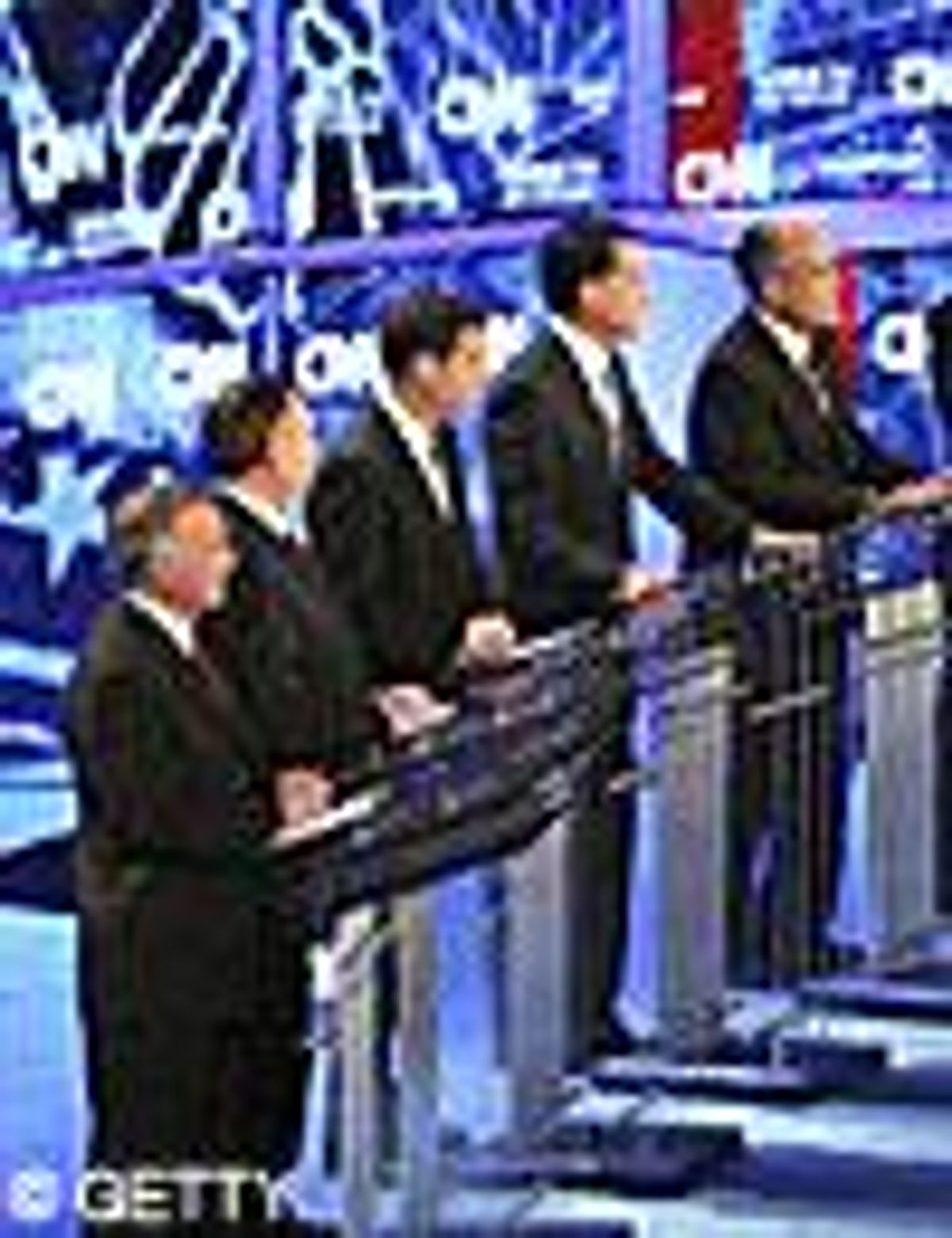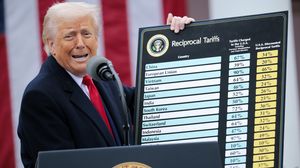While Republican
Mike Huckabee wishes voters Merry Christmas in a
television ad, a group organized by his supporters makes
automated phone calls slipping the knife into his
opponents.
John Edwards,
lagging behind his Democratic rivals in cash, gets more
than a million dollars in help from labor unions running
parallel campaigns.
And Hillary
Rodham Clinton, who is locked in a tight race in Iowa, has
well-organized and highly strategic assistance from labor
backers and EMILY's List, the pro-abortion rights
fund-raising group that aims to help women candidates.
Presidential
candidates are benefiting -- and sometimes being attacked --
by independent groups that are only now beginning to make
their presence known in the early-contest states of
Iowa and New Hampshire. These groups can be more
targeted and more negative, and can coordinate their
activities in ways that candidate campaigns cannot.
At the same time,
the contenders themselves are operating on parallel
tracks. Republican candidates in particular are stuffing
mailboxes with negative messages about their rivals
while airing cheery holiday greetings on television.
Mitt Romney has
been especially prolific with negative mail. One piece
portrays Fred Thompson as having a ''do nothing record'' on
immigration and characterizes his other rivals -- John
McCain, Huckabee, and Rudy Giuliani -- as too lenient
toward illegal immigrants.
In one brochure
mailed in Iowa, Thompson criticizes the economic policies
of Huckabee, a former Arkansas governor with this: ''Mike
Huckabee talks like a Republican but taxes like a
Democrat.'' Clinton and Barack Obama have exchanged
mail over their health care plans.
The mixed
messages have their purposes. Negative television can damage
both the source and the target. But negative mailings can be
aimed at supporters and at voters with a specific
gripe.
''Broadcast
messages are seen by a broader audience,'' said Stephen D.
Ansolabehere, a political scientist at the Massachusetts
Institute of Technology and an expert on political
advertising. ''Your attack direct mail is going to be
sent to the people you want it to be sent to. It's not
going to go to areas you don't want to alienate.''
Outside groups
often have been more likely to go on the air with negative
advertising. But for the most part, they too have been
targeted with their attacks, if they attack at all.
The Club for
Growth, which advocates fiscal conservatism, appears to be
an exception for now, running television ads against
Huckabee. A conservative political action committee
called RightMarch.com has spent about $330,000 in
mailings and phone calls against Clinton.
The group helping
Huckabee, Common Sense Issues, is conducting automated
interactive phone calls in Iowa, New Hampshire, South
Carolina and Florida that provide a positive message
about Huckabee or information that is critical of his
opponents. It also is organizing caucus-goers for
Huckabee, a significant leg up for a cash-strapped candidate
who has only recently seen his campaign catch fire.
EMILY's List has
spent $486,000 to identify about 20,000 Clinton-leaning
women in Iowa who voted in 2006 but did not participate in
the presidential caucus in 2004. Maren Hesla, who
heads the group's independent expenditures, said her
staff is using automated and personal phone calls,
direct mail, Google ads, and the Web to educate women about
the caucus process.
EMILY's List is
coordinating with the American Federation of Teachers and
the American Federation of State County and Municipal
Employees, two unions that have endorsed Clinton and
are paying for ads on radio and television supporting
Clinton.
AFSCME also just
spent $34,000 on a direct-mail piece in Iowa dismissing
Obama's health plan as ''another Band-Aid solution.'' The
mail piece quotes Edwards, not Clinton, criticizing
Obama's plan. The Edwards camp complained the brochure
was misleading.
Altogether, the
three pro-Clinton groups have spent more than $2 million
to help her in the past month.
''We all talk
regularly,'' Hesla said. ''The biggest issue was making
sure that we are hitting different audiences.''
Edwards is
getting hundreds of thousands of dollars in advertising help
from the United Brotherhood of Carpenters and Joiners and
from Service Employees International Union locals who
have endorsed his campaign. The Carpenters created
Working for Working Americans, which is running
$482,250 in ads in Iowa through the Jan. 3 caucus. The SEIU
locals banded together in the Alliance for a New
America, which is running $590,000 in radio ads.
Obama, in a
fundraising pitch Thursday, complained about the ads, calls
and mailings from the outside groups. ''Some of it is
negative and even deceptive, and a lot of it is paid
for by huge, unregulated contributions from special
interests,'' he wrote.
The organizations
supporting Huckabee, Clinton and Edwards are prime
examples of the different types of groups that are seeking
to influence elections.
- AFSCME,
AFT and EMILY's List, the groups supporting Clinton, are
using their political action committees, which are
financed with regulated and limited contributions and
can directly advocate the election or defeat of a
candidate.
- The
Carpenters and the SEIU locals backing Edwards have set up
nonprofit groups called ''527'' organizations that can raise
unlimited amounts of money but can only express
support for Edwards through ''issue ads.'' They cannot
urge anyone to vote for Edwards, but they can
encourage them to call Edwards in support of a particular
issue. In 2004, they would not have ben able to air
ads within 30 days of an election, but the Supreme
Court struck down that prohibition.
- Common
Sense Issues, the group backing Huckabee, is organized as a
501(c)4 organization that can receive unlimited
contributions from individual donors and advocate for
or against a candidate provided that more than half of
its activity is nonpolitical. It is one of the newest
breeds of politically active groups.
None can
coordinate with the candidates, though several of them have
strong ties to the candidates they support.
Huckabee has
urged Common Sense Issues to halt its calls. And Edwards in
Portsmouth, N.H., on Wednesday, complained that he could not
tell the groups to stop.
''The way the law
exists today is you have no control,'' Edwards said.
''You're not allowed by law to have contact or to coordinate
with 527s. So can you discourage it? Yes, and I do.''
(Jim Kuhnhenn, AP)


















































































